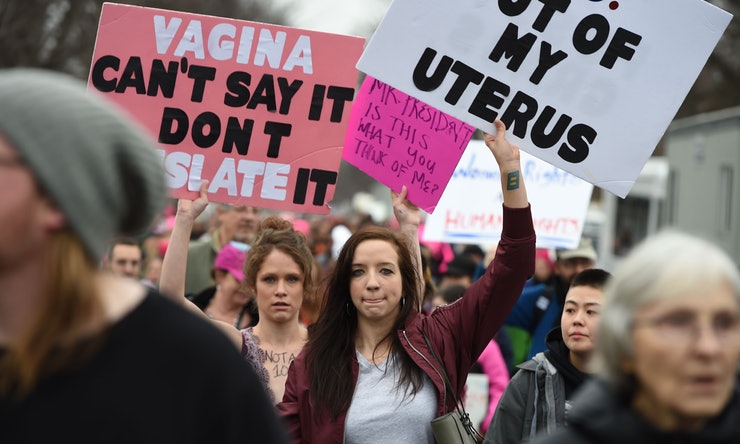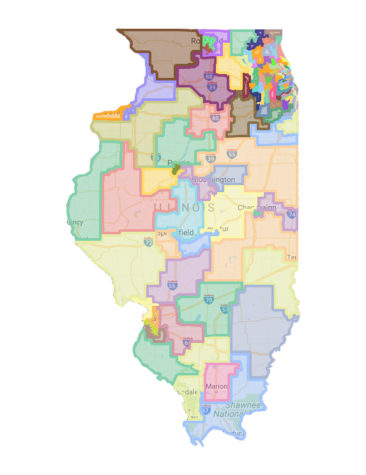Women’s Reproductive Rights in Illinois
In June 1969, Norma L. McCorvey found herself pregnant unexpectedly. In try and obtain an abortion in Texas, she falsely asserted that she had been raped, hoping that her proclaimed circumstances would prove exception to the state’s ban on abortions.
However, without a police report documenting the rape, the scheme failed. After she was unable to obtain an illegal abortion, she took legal action and joined a group of pregnant women who were suing the state over their right to privacy.
The women argued that the right to privacy under the Due Process Clause of the 14th amendment extended to their right to seek an abortion.
On June 17, 1970, the District court declared the Texas law unconstitutional, a ruling the U.S. Supreme Court affirmed in a 7-to-2 decision three years later.
“Right of privacy is broad enough to encompass a woman’s decision whether or not to terminate her pregnancy,” the Court asserted in its opinion.
The landmark Supreme Court case, commonly known as Roe V. Wade, recognizes the women’s constitutional right to abortion and ruled that a state could not ban an abortion if the woman’s life is at stake or if the pregnancy is at a point in which the fetus cannot survive outside the uterus. Since the decision, women have had somewhat more access to legal abortions. But, the fight is far from over—especially in Illinois.
Abortion in Illinois
According to Perspectives on Sexual and Reproductive Health, 1671 abortion-providing facilities are in the United States as of 2014–40 of those are in Illinois, including 24 clinics.
Approximately 42,270 abortions, or 4.6 percent of the total amount of abortions in the country, took place in Illinois.
Despite the Supreme Court mandate, women still have trouble accessing abortion services. Around 92 percent of clinics in Illinois counties did not provided abortions, despite that 40 percent of Illinois women lived there.
Access in Illinois was only made more difficult in April 2017. First, abortion was no longer covered in insurance policies for public employees, unless a woman’s life was in danger. Second, parents must be notified if a minor is seeking an abortion. Third, Medicaid will provide no coverage for medically necessary abortions, even if there is a court order direct to do so.
These new rules targeted those who were most likely to seek abortions—women that are both young and economically disadvantaged.
Based on the data from the Guttmacher Institute’s Abortion Patient Survey, 60 percent of abortion patients were in their 20s. As of 2014, 35 percent of patients were covered by Medicaid, a joint federal-state program that provides health coverage to low-income citizens.
Fallout over HB40
Many of these restrictions were overturned, however, with the passage of House Bill 40, which made Illinois the first state in decades to voluntarily lift restrictions on Medicaid coverage of abortion.
Republican Gov. Bruce Rauner signed the bill in September, shocking many of his conservative allies and constituents. According to Illinois Public Media News, he called the moral argument against HB 40 powerful, but ultimately underscored the importance of a woman’s right to body autonomy.
“No woman should be forced to make a different decision than another woman would make purely based on her income,” the governor said, shortly after signing the bill.
The law proved incredibly divisive.
Dr. Willie Parker, a reproductive justice advocate, said Rauner “acted in the best interest of the patients of Illinois”.
“Everyone, regardless of their income or where their insurance comes from, deserves access to medical care, and this bill is an important step forward for the health, dignity, and economic security of Illinois patients,” he said.
But, while pro-rights advocated lauded the bill, many conservatives were shocked at the move and proclaim that they are cutting ties with the governor all together.
Laurie Higgins, cultural analyst from Christian lobbying group Illinois Family Action, said Rauner “stabbed conservative in the back”, and “ensure[d] that thousands more babies will be killed in the womb… and taxpayers will pay for their deaths.”
The group as a whole condemned the governor, saying that the bill will have serious consequences for Rauner’s political future. Already, conservatives are looking for another candidate to run against Rauner in the Republican primary.
Nationally, too, conservatives are looking to seriously limit when a woman can receive an abortion.
The proposed Heartbeat Bill, which already had its first hearing in the U.S. House of Representatives, mandates that no woman can proceed with an abortion if a heartbeat is detected, unless her life is in danger.
Based on the research by the American College of Obstetricians and Gynecologists, the heartbeats of pre-born children can be detected as early as six weeks of pregnancy.
According to fellow Christian lobbying group Illinois Family Institute, this proposal has already had 169 co-sponsors out of the 435 members of the U.S. House of Representatives.
Representative Steve King, who introduced the bill, told to reporters in January that the Heartbeat Bill would save numerous pre-born children.
“We think this bill properly applied does eliminate a large, large share of the abortions –90 percent or better –of the abortions in America,” he said.
But, pro-rights activists say that the rule would seriously limit the time frame when women could obtain an abortion and could lead to an increase in illegal procedures.
“I have been involved in the provision of abortion care for over 15 years and can say that there is no rational, scientific, medical or public health reason that would make sense to prohibit women from
obtaining the care they need,” said abortion provider and board-certified OB-GYN Dr. David Eisenberg. “Bans such as these will not reduce the number of abortions, but will result in more women being hurt.”



